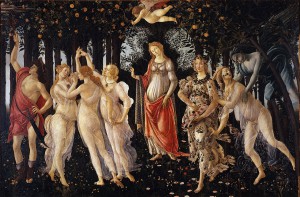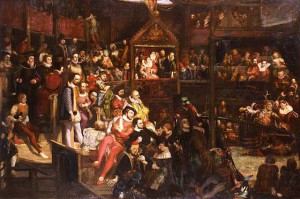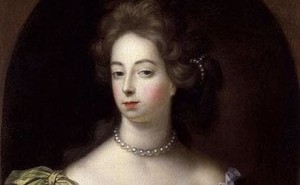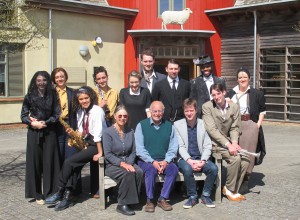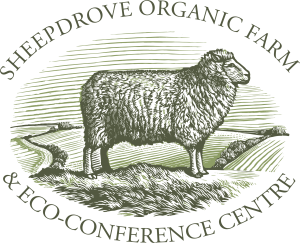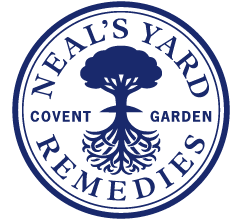Patronage through the ages: philanthropy and the arts
26 April 2017
Eleanor Teasdale, Development Officer, delves into the fascinating history of patronage and the arts. To find out more about supporting The Watermill Theatre click here.
Patronus is a magical word. Not just in the world of Harry Potter. It’s a borrowed term used by JK Rowling which dates back to Ancient Rome and the Latin translation for our modern philanthropic term ‘Patron’. It’s nothing new. Just as Harry Potter and pals summoned mystical guardians to offer help in difficult times, artists throughout time have called upon the support of wealthier benefactors to provide financial aid and help bring artist vision to life.
As a thank you to their patrons for their generosity, writers and painters have flattered them with a likeness. Either in paintings, or in a character portrayal or with a dedication in the foreward. The powerful banking family, the Medicis, are all over Florentine art; their faces popping up in scenes – sometimes discretely in the background or to the side, and in others jostling for prime position in the foreground. Even the golden balls of the Medici family crest are evident in many artworks of the time, and have been picked up more subtly in Botticelli’s The Three Graces as orange globes of fruit.
Shakespeare was well-known for his reliance on his Royal Patrons to stage his work, notably Queen Elizabeth I and King James I. With its complimentary eulogy to the (fairy) Queen, it’s said that A Midsummer Night’s Dream was most likely created for a special performance at Court. In the Tudor court, money and power went hand in hand and art was a powerful political tool among philanthropic courtiers and being seen to give to the arts often earnt them influence in the Court. Contrary to later Victorian paintings (as below), Elizabeth I never would have attended a public performance in an arena like The Globe. Instead she would have had the entertainment brought to her.
Thankfully King Charles II reopened the theatres in 1660 after the Puritans were booted out and monarchy was fully restored. The playhouses were once again invested in and returned to their former glory. As a result, the theatre became bawdier than ever. A frequent attender of the theatre, King Charles’ patronage of, and dalliances with, actress and prostitute Nell Gwyn (below) are infamous. Nell certainly knew how to work her position as one of Charles’ mistresses to her advantage. Indeed even on his death bed his parting bequest was for Nell to remain looked after – “Let not poor Nelly starve”.
Today patronage continues to flourish. Sainsburys have their own wing in the National Gallery, Saatchi has his own gallery, and the Sacklers have their own bridge at Kew Gardens. In the last financial year, individual charitable donations in the UK totalled an incredible £9.6bn proving that philanthropy is still popular amongst us Brits.
The Watermill is also fortunate to receive donations from generous patrons whose philanthropic support ensures we are able to continue to produce great theatre for all. We rely on individuals, trusts and foundations and corporate supporters to stage our work, keep the theatre open and expand our participatory work in the community. 13% of our annual income last year was earned through fundraising activities. You can read more about our finances in our Annual Review.
We are currently staging Twelfth Night, which will later tour the UK in rep with Romeo + Juliet. This is made possible by the support of Principal Sponsor Sheepdrove Organic Farm & Eco-Conference Centre and of UK Tour Sponsor Neal’s Yard Remedies. Co-Founders of both companies, Peter and Juliet Kindersley have been longstanding supporters of the arts in Berkshire and have previously supported The Watermill Theatre’s Shakespeare productions as well as the development process of our rural touring programme.
With a keen interest in Shakespeare, they thought it only fitting that with their combined love of food and the arts that they support The Watermill’s bold restaging of Twelfth Night. We are incredibly grateful to Sheepdrove Organic Farm and Neal’s Yard Remedies for their support and as part of their sponsorships, The Watermill will deliver a range of benefits to promote each brand.
Principal Sponsor
UK Tour Sponsor
Eleanor Teasdale, Development Officer


